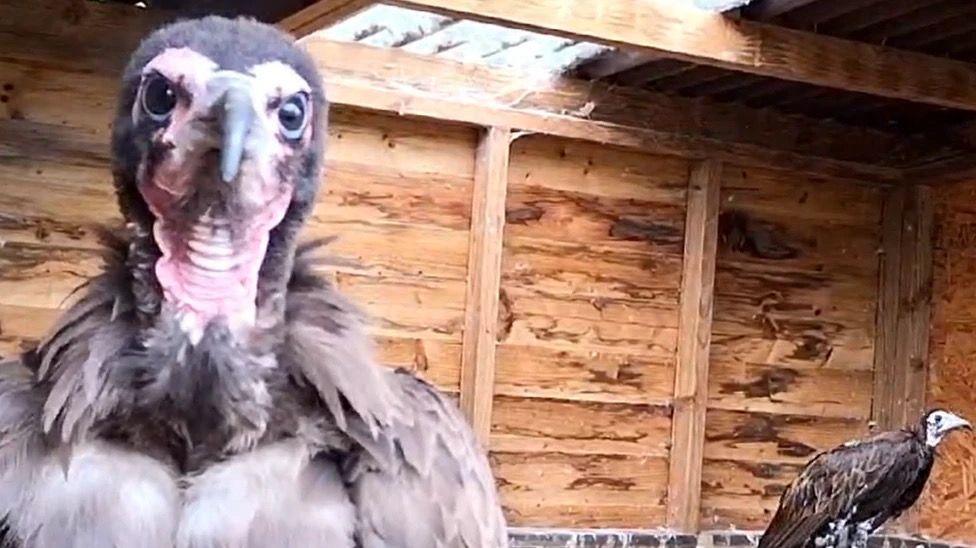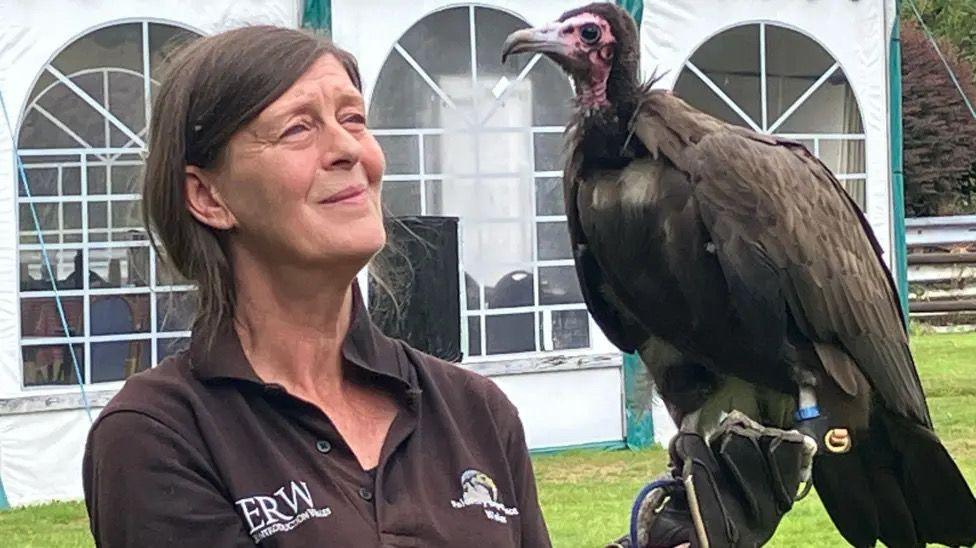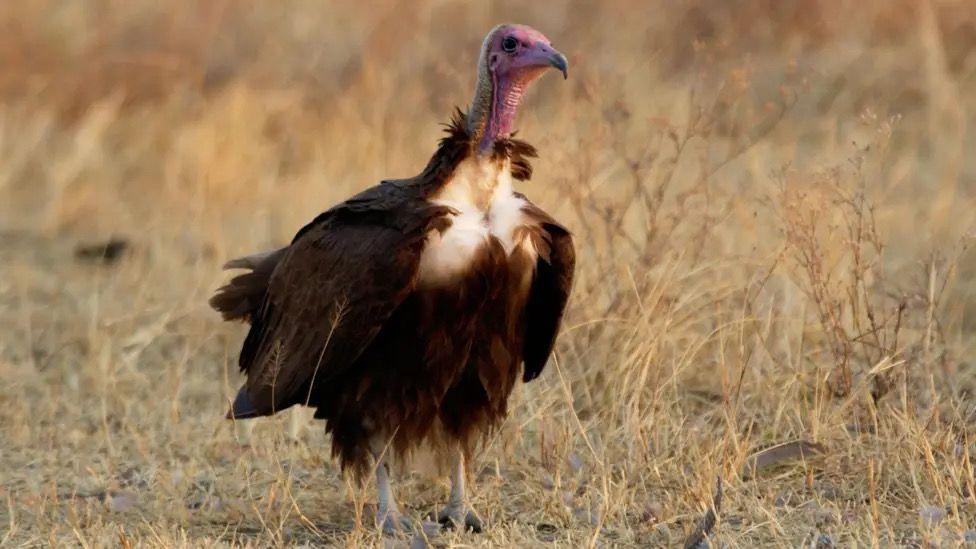The mission to save rare vultures from extinction

Rare African hooded vulture Togo, with potential mate Hope, in their enclosure
- Published
These birds might not win a beauty contest, but they do an incredible job for nature.
They eat dead animals before the decomposing bodies can spread germs, meaning human populations can avoid illness and disease.
A bird centre in Wales is on a special mission – to help save the African hooded vulture.
These vultures are now critically endangered - which means they are at very high risk of disappearing forever - with fewer than 150,000 left in the wild.
- Published7 May
- Published29 April 2023
- Published12 September 2013
At Falconry Experience Wales in Powys, Luce Green and her partner Barry MacDonald have made it their mission to protect vultures. "It's my life's work," said Luce. "I like to think of it as love into action."
The centre is hoping a hand-reared male vulture, called Togo, will pair with a female named Hope.
Vultures usually only raise one chick at a time, so every egg is precious. "There are only 200 hooded vultures in a human-based environment and the race is on," said Luce.

Luce Green says it's her "life's work" to save the African hooded vulture
Why are African hooded vultures close to extinction?
Poisoning is one reason the bird is facing extinction. Poachers, who illegally hunt animals, sometimes poison carcasses so that vultures don't circle above and reveal their location to authorities. In some countries, vulture parts are also used in traditional medicines.
Campbell Murn, head researcher at the Hawk Conservancy Trust and lecturer at the University of Reading, said: "If your vultures are dying and disappearing then you've really got some problems.
"We should care for vultures because they're amazing. They form these really strong pair bonds, they're dedicated parents, they're fastidiously clean - Some people call them nature's dustbin collectors."

’Nature’s dustbin’, experts say African hooded vultures are crucial to the environment, helping to prevent the spread of illness and disease
The team in Wales is also helping another rare species, the white-backed vulture.
By raising chicks, fitting GPS trackers, and even sending poison response kits to areas in Africa and Asia, they hope to give the birds a chance.
